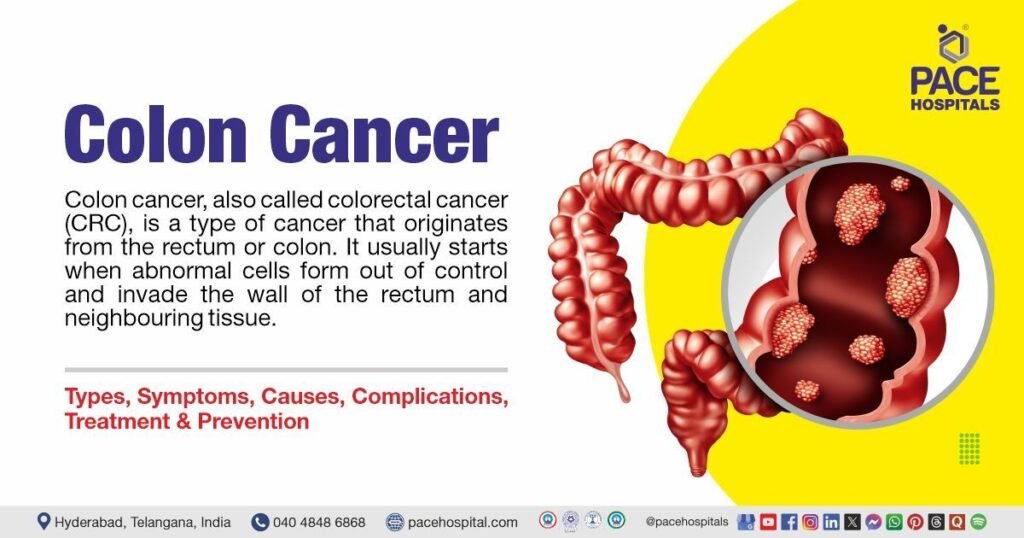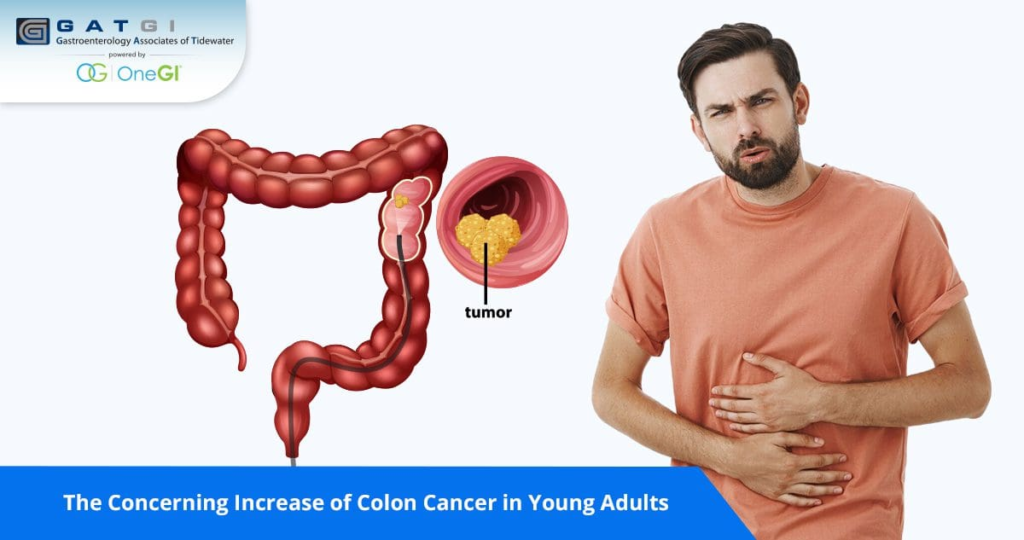Colon cancer is one of the most common cancers in the world. In the United States, it ranks as the third leading cause of cancer-related deaths. But the good news is that colon cancer is also one of the most preventable and treatable types of cancer when detected early.
This article explains what causes colon cancer and how you can prevent it. Understanding the risk factors and knowing what lifestyle changes to make can help protect you and your loved ones.
1. What Is Colon Cancer and Who Gets It?
Colon cancer, also called colorectal cancer, starts in the large intestine or rectum. It usually begins as small clumps of noncancerous cells called polyps. Over time, some of these polyps can become cancer.
Colon cancer affects both men and women, and the risk increases with age. Most cases occur in people aged 50 or older, although it is now becoming more common in younger adults under 45.
2. Key Risk Factors That Cause Colon Cancer
Understanding what causes colon cancer is the first step to preventing it. Here are the major risk factors:
- Age: Most cases occur after age 50.
- Family History: Having a parent, sibling, or child with colon cancer increases your risk.
- Diet: Eating too much red or processed meat and not enough fruits and vegetables can raise your risk.
- Obesity: Being overweight increases inflammation and insulin resistance, which can lead to cancer.
- Smoking: Tobacco use is linked to many cancers, including colon cancer.
- Alcohol: Heavy drinking increases your risk.
- Lack of Exercise: A sedentary lifestyle can slow digestion and increase risk.
- Type 2 Diabetes: People with diabetes are at higher risk.
- Inflammatory Bowel Diseases: Conditions like Crohn’s disease and ulcerative colitis can lead to long-term inflammation, increasing the chances of cancer.

3. Warning Signs and Symptoms to Watch
Colon cancer often develops without early symptoms, which makes regular screening important. But when symptoms do appear, they may include:
- Blood in the stool
- Unexplained weight loss
- Ongoing fatigue
- Abdominal pain or cramping
- Changes in bowel habits, such as diarrhea or constipation
- A feeling that the bowel does not empty completely
These symptoms can also be caused by other health problems, but it’s important to see a doctor if they persist.
4. Colon Cancer Can Be Prevented
There are many ways to reduce your chances of getting colon cancer. Here are some important steps:
- Get Regular Screenings: Colonoscopies can detect and remove polyps before they turn into cancer. Most adults should start screening at age 45 or earlier if they are at high risk.
- Eat a Healthy Diet: Focus on vegetables, fruits, whole grains, and lean proteins. Avoid processed meats like bacon and sausage.
- Exercise Regularly: Aim for at least 30 minutes of physical activity most days of the week.
- Maintain a Healthy Weight: Obesity increases your risk, so healthy weight management is key.
- Quit Smoking: Stopping tobacco use lowers your cancer risk.
- Limit Alcohol: If you drink, do so in moderation.
5. The Role of Genetics and Hereditary Syndromes
Some people are more likely to get colon cancer because of inherited genes. The two most common genetic conditions are:
- Lynch Syndrome: This condition increases the risk of colon and other cancers at a young age.
- Familial Adenomatous Polyposis (FAP): A rare disorder where hundreds of polyps form in the colon and rectum.
If colon cancer runs in your family, talk to your doctor about genetic testing and early screening.

6. Is it Treatable If Caught Early
When found early, colon cancer has a high survival rate. Treatment may include:
- Surgery: Removing the tumor is often the first step.
- Chemotherapy: Used to destroy cancer cells or stop their growth.
- Radiation: Used in some cases, especially rectal cancer.
- Targeted Therapy: Drugs that target specific cancer cells.
The earlier colon cancer is detected, the easier it is to treat.
7. Screening Saves Lives
Screening is one of the most effective ways to prevent cancer deaths. Common screening tests include:
- Colonoscopy: This test looks at the entire colon and can remove polyps.
- Stool Tests: These look for signs of blood or DNA changes in your stool.
- Flexible Sigmoidoscopy: A less invasive exam of the lower colon.
Talk to your healthcare provider about which test is right for you and when to start.
Final Thoughts
Colon cancer is a serious but preventable disease. Knowing what causes colon cancer and how to prevent it can save lives. Regular screenings, healthy lifestyle choices, and paying attention to your body are key.
If you have a family history or any symptoms, don’t wait. Early detection can make all the difference.
Now is the time to take control of your health and reduce your risk. Prevention is powerful and it starts with knowledge.
Read more – Rick Singer Allowed To Advise Students Again After College Scam






